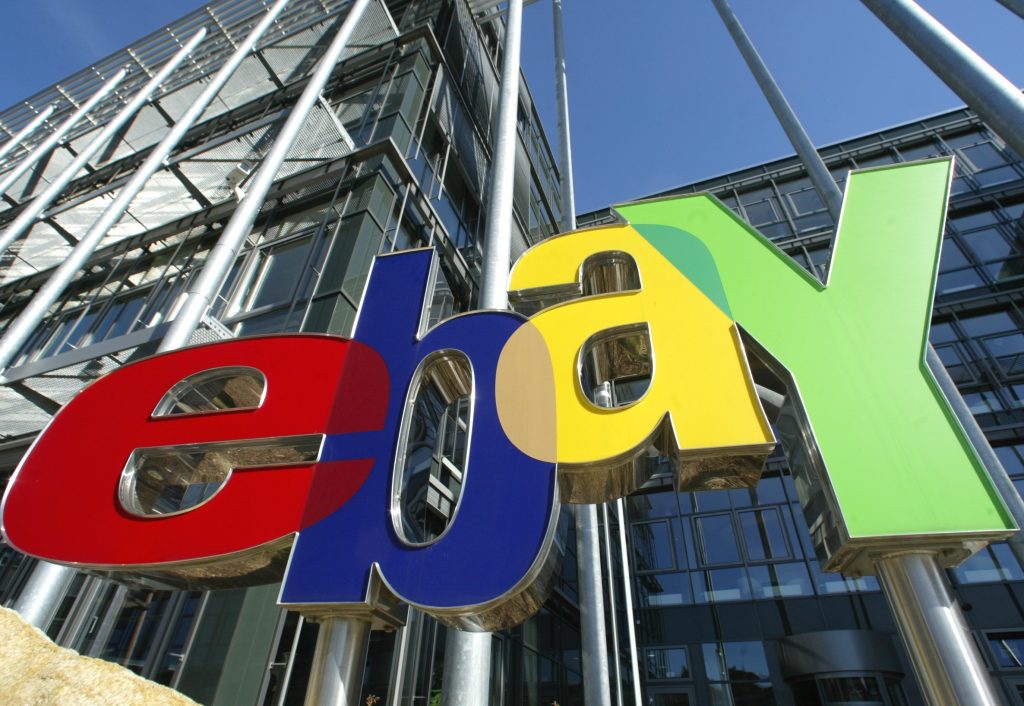This report provides the last five years revenues and revenue growth of Ebay Inc (EBAY) from 2012 to 2016. eBay generated a total of $9 billion revenues during 2016. eBay reported a revenue growth of 4.5% year-over-year during 2016. The revenues and the revenue growth correspond to the fiscal year ending in December.
EBAY REVENUES FROM 2012 TO 2016
Here are the revenues and the revenue growth details of eBay during the last five years:
- eBay generated a total of $14.1 billion revenues during 2012. eBay reported a revenue growth of 20.8% year-over-year during 2012.
- eBay generated a total of $8.3 billion revenues during 2013. eBay reported a revenue growth of -41.3% year-over-year during 2013.
- eBay generated a total of $8.8 billion revenues during 2014. eBay reported a revenue growth of 6.5% year-over-year during 2014.
- eBay generated a total of $8.6 billion revenues during 2015. eBay reported a revenue growth of -2.3% year-over-year during 2015.
- eBay generated a total of $9 billion revenues during 2016. eBay reported a revenue growth of 4.5% year-over-year during 2016.

WHY ANALYZE REVENUE GROWTH?
Revenue growth is the most commonly analyzed financial metric. Revenue Growth is the percent increase (or decrease) of a company’s revenue between two time periods. It is computed by using the following formula: ((revenues during the time period two – revenues during the time period one) / revenues during the time period one)*100. If the time periods are two consecutive years, then the revenue growth is referred to as the annual revenue growth year-over-year. If the time periods are two consecutive quarters, then the revenue growth is referred to as the quarterly revenue growth quarter-over-quarter. If the time periods refer to the same quarter in the two consecutive years, then the revenue growth is referred to as quarterly revenue growth year-over-year. In case the time periods are two non-consecutive years, then the revenue CAGR (Commutative Annual Growth Rate) is computed.
Revenue growth analysis is important for a number of reasons. First, it helps in understanding how a business is performing. If the revenue growth rates are positive, it means the business is performing well and the revenues are increasing. If the revenue growth rates are negative, it means the revenues are declining and the company needs to take measures to increase them. If they don’t, the company will continue to shrink. Second, a company’s historical revenue growth analysis along with the market size and market share analysis helps in forecasting the future revenues of a company. Third, a comparison of a company’s growth rates with its competitors helps in determining who is winning more business. A revenue growth higher than the industry average translates into increasing market share. Companies with very high revenue growth rates have the potential to be the industry disrupters.
EBAY RANKING
With $9 billion revenues, eBay ranked number 317 in the R&P; Research list of top-3000 public companies in the US by revenues during 2016. Each one of the top-3000 companies generated more than $50 million of annual revenues during 2016.

The top-20 companies in the US by revenues during 2016 were:
- Walmart ($482.1 billion)
- ExxonMobil ($226.1 billion)
- Berkshire Hathaway ($223.6 billion)
- Apple ($215.6 billion)
- McKesson ($190.9 billion)
- UnitedHealth Group ($184.8 billion)
- CVS Health ($177.5 billion)
- General Motors ($166.4 billion)
- AT&T; ($163.8 billion)
- Ford Motor ($151.8 billion)
- AmerisourceBergen ($146.8 billion)
- Amazon ($136 billion)
- Verizon ($126 billion)
- General Electric ($123.7 billion)
- Cardinal Health ($121.5 billion)
- Costco ($118.7 billion)
- Walgreens Boots Alliance ($117.4 billion)
- Chevron ($114.5 billion)
- Kroger ($109.8 billion)
- Express Scripts Holding ($100.3 billion)
For the purpose of performance benchmarking of a company with a sector or industry average, R&P; Research associates every company with one sector and one industry. An industry consists of companies with related/similar business models. A sector comprises of a group of related/similar industries. For example, Life Sciences sector is comprised of following industries: Pharmaceuticals; Medical Devices; Biotechnology; Diagnostics & Scientific Instruments.
eBay is associated with Technology Sector and Internet Industry.
With $9 billion revenues, eBay ranked number 35 of all the companies in the US Technology sector. There were a total of 406 public companies in the US Technology sector that had revenues greater than $50 million during 2016.

The top-10 companies in the US Technology sector by revenues during 2016 were:
- Apple ($215.6 billion)
- Amazon ($136 billion)
- Alphabet ($90.3 billion)
- Microsoft ($85.3 billion)
- IBM ($79.9 billion)
- Intel ($59.4 billion)
- Hewlett Packard Enterprise ($50.1 billion)
- Cisco Systems ($49.2 billion)
- HP ($48.2 billion)
- Oracle ($37 billion)
Technology sector is comprised of the following industries: Computers Systems and Peripherals; Software; Semiconductor; IT Consulting and Outsourcing Services; Networking Equipment and Services; Internet; Other. The definitions for each of the industries is as follows:
- Computers Systems and Peripherals industry includes companies primarily engaged in manufacturing of personal computers, servers, mainframes, workstations, and other computer accessories and peripherals such as storage drives, mice, keyboards and printers. It also includes manufacturers of mobile phones and tablets.
- Software industry includes businesses providing software products such as operating systems, productivity suites, enterprise software, data and analysis software, advertising and marketing software, engineering and manufacturing software, networking software, and IT management software. It also includes companies providing industry-specific software focused on different sectors such as Financials, Automotive, Telecom, Utilities, Travel, Real Estate, Media, and Publishing.
- Semiconductor industry includes companies primarily engaged in manufacturing and distribution of semiconductor products such as microprocessors, chipsets, motherboards, flash memory, and wired and wireless connectivity products. It also includes companies that provide semiconductor equipment and services to the semiconductor industry.
- IT Consulting and Outsourcing Services industry includes companies primarily engaged in providing information technology consulting and outsourcing services to other businesses. The services include IT consulting, systems integration, application development and management, IT infrastructure management, and network operations management.
- Networking Equipment and Services industry includes companies primarily engaged in manufacturing and distribution of networking and communications equipment for transporting data, voice, and video traffic across intranets, extranets, and the Internet. The key products include routers and switches for local and wide-area networks, cable modems, teleconferencing equipment, and wireless access points.
- Internet industry includes Internet-based businesses providing products and services such as search engines, social networking, web hosting, email, domain name registration, and eCommerce. It also includes industry information/services portals focused on different sectors such as Financials, Automotive, Travel, Health, Real Estate, Media, and Publishing.
- Other industry includes companies providing products such as photocopiers, fax machines, point of sale machines, audio/video technologies, and video games. It also includes technology companies that are not part of other six technology industries.

With $9 billion revenues, eBay ranked number 6 of all the companies in the US Internet industry. There were a total of 74 public companies in the US Internet industry that had revenues greater than $50 million during 2016.
The top-10 companies in the US Internet industry by revenues during 2016 were:
COMPANIES SEGMENTATION
To identify and analyze high/low growth or most/least profitable similar-size companies in different sectors or industries, R&P; research classifies all companies into different segments based upon their revenues, revenue growth, and net profit margins.
Based upon their annual revenues, the companies are classified into one of the following four segments:
- Mega companies, having revenues greater than $50 billion.
- Very Large companies, having revenues between $10 billion and $50 billion.
- Large companies, having revenues between $1 billion and $10 billion.
- Mid-size companies, having revenues between $50 million and $1 billion.
With $9 billion revenues, eBay was in the Large companies revenue segment during 2016. There were a total of 1097 companies in the Large companies revenue segment during 2016.

Based upon their annual revenue growth, the companies are classified into one of the following eight segments:
- Very High positive growth companies, having annual revenue growth greater than 50%.
- High positive growth companies, having annual revenue growth between 20% and 50%.
- Medium positive growth companies, having annual revenue growth between 5% and 20%.
- Low positive growth companies, having annual revenue growth between 0% and 5%.
- Low negative growth companies, having annual revenue growth between -5% and 0%.
- Medium negative growth companies, having annual revenue growth between -20% and -5%.
- High negative growth companies, having annual revenue growth between -50% and -20%.
- Very High negative growth companies, having annual revenue growth less than -50%.
With 4.5% revenue growth year-over-year, eBay was in the Low positive revenue growth segment during 2016. There were a total of 593 companies in the Low positive revenue growth segment during 2016. Of the US top-3000 companies, 1985 (nearly two-third of the total) had positive revenue growth and 1015 (nearly one-third of the total) had negative revenue growth during 2016.
Based upon their annual net profit margin, the companies are classified into one of the following eight segments:
- Very High positive margin companies, having net profit margin greater than 50%.
- High positive margin companies, having net profit margin between 20% and 50%.
- Medium positive margin companies, having net profit margin between 5% and 20%.
- Low positive margin companies, having net profit margin between 0% and 5%.
- Low negative margin companies, having net profit margin between -5% and 0%.
- Medium negative margin companies, having net profit margin between -20% and -5%.
- High negative margin companies, having net profit margin between -50% and -20%.
- Very High negative margin companies, having net profit margin less than -50%.

With a net margin of 80.9%, eBay was in the Very High positive net profit margin segment during 2016. There were a total of 54 companies in the Very High positive net profit margin segment during 2016. Of the US top-3000 companies, 2244 (nearly three-fourth of the total) had positive net profit margin and 756 (nearly one-fourth of the total) had negative net profit margin during 2016.
COMPANY BUSINESS SUMMARY
eBay Inc. operates commerce platforms that connect various buyers and sellers worldwide. Its platforms enable sellers to organize and offer their inventory for sale; and buyers to find and purchase it virtually. The company’s Marketplace platforms include its online marketplace at ebay.com and the eBay mobile apps; and StubHub platforms comprise its online ticket platform at stubhub.com, and the StubHub mobile apps and Ticketbis platforms that connect fans with their favorite sporting events, shows, and artists, as well as enables them to buy and sell tickets. Its Classifieds platforms include a collection of brands, such as mobile.de, Kijiji, Gumtree, Marktplaats, eBay Kleinanzeigen, and others, which offer online classifieds to enable people find whatever they are looking for in their local communities. The company’s platforms enable users to find, buy, sell, and pay for items through various online, mobile, and offline channels that include retailers, distributors, liquidators, import and export companies, auctioneers, catalog and mail-order companies, classifieds, directories, search engines, commerce participants, shopping channels, and networks. eBay Inc. was founded in 1995 and is headquartered in San Jose, California.
















